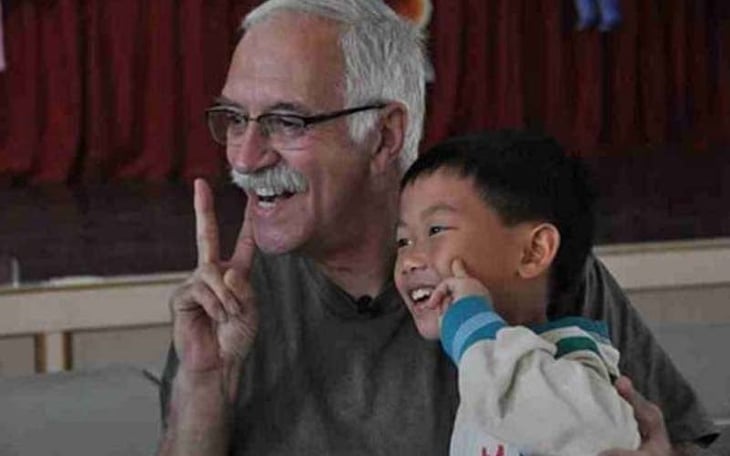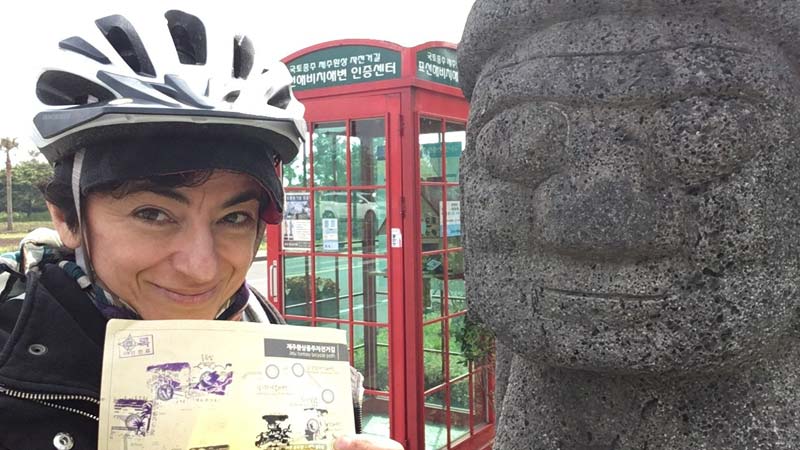Will I Face Age Restrictions Teaching English Abroad in Asia?
As a popular destination for English language teachers, countries in Asia have varying requirements for age, qualifications, and experience.
Written By: Tyler Parsons | Updated: February 5, 2026
Written By: Tyler Parsons
Updated: February 5, 2026

International TEFL Academy graduates find paid work teaching English in Europe, Latin America, Asia, and the Middle East. Beyond TEFL certification, some markets, including Asia, have additional requirements for hiring teachers.
Certain countries require a 4-year university degree, others may require an advanced degree in education, and some countries don't require a degree at all. In some countries, a teacher's age can play a factor in the hiring process as well. In this article, we'll dive into the region of Asia specifically, and we'll look into what restrictions a teacher over 40 may need to work with and what opportunities are still available.
Can I teach English in Asia over the age of 40?
While you may encounter age restrictions in Asia, there are many options for more mature TEFL-certified English teachers. Schools in Southeast Asian countries such as Cambodia, Thailand, Taiwan, and Vietnam will hire some teachers in their 50s and 60s. Government-run public school programs in South Korea and Japan technically accept teachers in their 60s as well.
Generally speaking, those with advanced teaching credentials and experience will have an easier time getting hired to teach English in Asian countries like China, where it is typically more difficult to be hired after the age of 40-45.
Age Guidelines for Teaching English in Asia Over 40
-
Cambodia: It's challenging but possible to get hired above the age of 50.
- China: retirement ages are 55 for women & 60 for men. There are strong preferences to hire teachers 21-40, except for more advanced teachers who may qualify to work in international schools or universities in their 50s.
- Japan: The official retirement age is 60. Most schools hire teachers between 21 and 40, though there is no official age limit for the JET Program, and some schools will hire older teachers, especially those with experience and advanced credentials. ITA's Guaranteed Job Placement Program for Teaching English in Japan accepts participants up to the age of 45.
- Malaysia: The official retirement age is 60.
- Myanmar: The official retirement age is 60. ITA's Guaranteed Job Placement Program for Teaching English in Myanmar accepts participants up to the age of 55 (no degree required).
- Singapore: Retirement age is 62-65.
- South Korea: The official retirement age is 60, but there is a strong preference to hire teachers ages 21-40. Older teachers may find more opportunities in schools outside of big cities, if they have more advanced teaching credentials and experience. The official cut-off age for the highly competitive EPIK Program for teaching English in public schools is 62, but a preference for younger teachers remains.
- Taiwan: Retirement age is 60 (women) & 65 (men); by law, employers are prohibited from discriminating based on age. In practice, however, there is a preference for teachers ages 21-40. Older teachers may find more opportunities in schools outside of big cities, and if they have more advanced teaching credentials and experience.
- Thailand: Officially, the retirement age is 60, but it is possible to get a work visa beyond the age of 60. Some schools prefer to hire teachers ages 21-40. ITA's Guaranteed Job Placement Program for Teaching English in Thailand accepted participants up to age 59.
- Vietnam: The cut-off age for getting a work permit to teach English in Vietnam is 60.
How to Understand Age Limits for Teaching Overseas in Asia
Certain teaching markets, especially in Asia, for English-language teaching positions for children, prefer younger teachers (ages 21-35) and impose age restrictions on hiring and qualifying for work visa sponsorship.
Read more: Are There Age Limits or Restrictions to Teach English Abroad?
It’s important for mature teachers to fully understand the market they’re interested in and understand the specific age restrictions when considering teaching abroad in Asia. Here are some points to consider:

1. Know the Country's Retirement Age
Countries such as South Korea, Japan, China, and Hong Kong enforce strict retirement ages for local teachers, which also applies to TEFL teaching positions.
Typically, these countries aren't able to sponsor work visas for teachers above the age of 60 or 65 due to these retirement rules, and schools often won't hire these teachers.
If you are over 40 and looking to teach English in Asia, be sure to speak with your International TEFL Academy Admissions Advisor at 773-634-9900 to discuss options.

2. Employers Can Fear Older Teachers May Not Adjust
While you may be up for the adventure of living in a new country and adapting to a new culture, schools in Asia may be more hesitant when hiring mature teachers.
Unlike Latin America or Europe, where teachers are hired in person and are responsible for the majority of start-up expenses, schools in Asia typically hire in advance and spend a significant amount of time and resources on new teachers.
Employers can possibly fear that older teachers may not adjust to the new culture and hectic lifestyle that is often associated with the region. Because schools place such an investment in hiring, they want to be absolutely certain that teachers will stay for the full contract and be up for full teaching commitment.
3. Understand the 'Respect Your Elders' Culture
Asian culture takes the saying "respect your elders" to a new level. Asian culture and society treat elders with the utmost respect, and this is very much instilled in children at a young age. This is also one of the reasons schools in Asia are hesitant to hire more mature teachers.
Many language schools and principals may be in their 30s or 40s, and it's seen as disrespectful to give orders and to correct someone who is older than they are, meaning the foreign teacher getting hired can't be older than the school administrators.
This respect for culture can limit the hiring of teachers older than the age of 40 at times in countries like South Korea, as it causes a struggle and tension that schools want to avoid.

4. Be Aware of the Specifics of Teaching Young Learners
A majority of the teaching jobs in Asia are for teaching children, sometimes as young as three or four years old.
Schools are seeking energetic teachers who can work 8-10 hours per day with a flexible schedule. There's a concern that an older teacher may not have the high energy and flexibility required for this type of position.
During the interview process, more mature teachers will have to be aware of the position they are applying for and the demographic of the students in the school, and handle the interview accordingly.
Age Limit for TEFL Teachers in Asia: Takeaways
We are not trying to deter teachers over 40 from teaching in Asia. While some countries— like South Korea— have more restrictions when it comes to age limits for teachers, others, such as Cambodia, and possibly Thailand and Vietnam, are known to hire teachers in their 40s and 50s, and even their 60s.
Check out some of these Alumni Q&As from more mature teachers, and as always, talk to an advisor to create the best plan for your adventure!
International TEFL Academy has helped numerous older teachers follow their dreams abroad, so if you’re willing to follow these tips, there’s no reason why we can’t help you, too!
Pro Tip! Some factors that may enhance your opportunities in many of these countries:
- If you have prior teaching experience or a degree in education;
- Whether it be on a spousal visa or under some other circumstance, if you already have legal residency in one of these countries, it will often be easier for you to gain employment, whether it be at a school or working as a private tutor.
Posted In: Teach English in Asia, Teaching Abroad Over 40, Teach English in China Must Read, Teach English in Vietnam Must Read, Teach English in Taiwan Must Read, Teach English in South Korea Must Read, Teaching Abroad Over 40 Must Read, Teach English in Hong Kong Must Read, Teach English in Singapore Must Read, Teach English in Thailand Must Read
Tyler Parsons
Tyler is California born and raised. After graduating from Chico State University with a BA in journalism, he traded his life on the beach for teaching English in Hong Kong. Now he helps others achieve their goals of teaching & living abroad as an Admissions Advisor at International TEFL Academy.
Want to Learn More About Teaching English Abroad & Online?
Request a free brochure or call 773-634-9900 to speak with an expert advisor about all aspects of TEFL certification and teaching English abroad or online, including the hiring process, salaries, visas, TEFL class options, job placement assistance and more.








